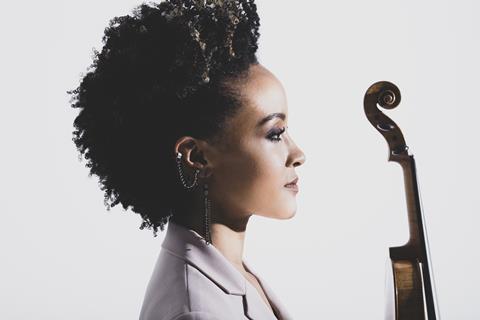Ahead of performances of both of Price’s violin concertos in March, violinist Melissa White chats to The Strad about discovering these works, as well as what makes Price’s music unique

Discover more Featured Stories like this in The Strad Playing Hub
You are playing both of Florence Price’s violin concertos in March! Can you tell us a little bit about when you first came across and performed the works? Are you more familiar with one or the other?
I first came across Florence Price’s violin concertos in 2019 thanks to Piotr Gajewski, founder and music director of the National Philharmonic. Piotr contacted me to ask if I was interested in learning Price’s first concerto to perform with his orchestra in February 2020. I listened to the one and only recording available at that time and was immediately drawn to Price’s soulful approach to the classical idiom. Upon doing a deep-dive into her life as a Black woman in classical music during the early 1900s, and discovering the amazing story of how her catalogue of work was nearly lost, I emerged excited and inspired to learn and pioneer her music.
It turned out that February 2020 would be my first performance of Concerto no.1, and my last concert before lockdown. This definitely left me with a special connection to the first concerto, but I’ve since had the opportunity to perform both concertos several times, and continue to fall in love with them more each time I get the opportunity to play them.
What is it about Price’s writing that lends a distinct ‘fingerprint’ in her compositions? How can you see this in her violin concertos?
Price’s writing uniquely combines her love for African American spirituals, the Romantic era of western classical music, and a hint of Hollywood movie music. She performed frequently for silent films, so you’ll find her compositions are filled with themes that could represent characters of a movie, with different themes returning throughout each work - just like characters moving through a film. Her soulful melodies are her distinct ‘fingerprint’ that I hear in all of her works.
What are some challenging aspects of both concertos? How do you overcome these?
Some of the challenges in her writing include finding balance between the solo line and orchestra, and looking out for tempo changes, especially around transitional passages. I don’t imagine that she got to hear these concertos performed much by orchestra, which is an extremely important part of the evolution of a composer and their compositions. This leaves a great responsibility for the soloist and orchestra to collaborate in a way that works for the overall piece to feel and sound like a convincing story. I like to discuss these challenges specific to Concerto no.1 right off the bat with the conductor so that we’re on the same page, and then adjust accordingly once we’re with the orchestra.
Finally, what are you most looking forward to in your performances on 15&16 March and 23 March?
I am most looking forward to connecting with the Buffalo Philharmonic and sharing my music with the community of Buffalo! I just joined the faculty at University at Buffalo in autumn 2022, and I’ve been getting to know the city and laying down some roots there. In Indianapolis, I’ve been co-curating a chamber music partnership with the Indianapolis Symphony Orchestra and Sphinx Organization for the past three years. I’ve gotten to collaborate with some of the ISO musicians during that time which has been wonderful, and I’m thrilled to now work with the full orchestra. This will be my debut with both ensembles and that always feels extra special!
Violinist Melissa White will perform Price Violin Concerto no.2 with the Buffalo Philharmonic on 15&16 March 2024, followed by a performance of Price Violin Concerto no.1 as part of the Indianapolis Symphony Orchestra’s ‘Celebration of Women’ on 23 March 2024.
Listen: The Strad Podcast #87: Yoga and string playing with violinist Melissa White
Read more Featured Stories like this in The Strad Playing Hub
The number one source for playing and teaching books, guides, CDs, calendars and back issues of the magazine.
In The Best of Technique you’ll discover the top playing tips of the world’s leading string players and teachers. It’s packed full of exercises for students, plus examples from the standard repertoire to show you how to integrate the technique into your playing.
The Strad’s Masterclass series brings together the finest string players with some of the greatest string works ever written. Always one of our most popular sections, Masterclass has been an invaluable aid to aspiring soloists, chamber musicians and string teachers since the 1990s.
American collector David L. Fulton amassed one of the 20th century’s finest collections of stringed instruments. This year’s calendar pays tribute to some of these priceless treasures, including Yehudi Menuhin’s celebrated ‘Lord Wilton’ Guarneri, the Carlo Bergonzi once played by Fritz Kreisler, and four instruments by Antonio Stradivari.













































No comments yet